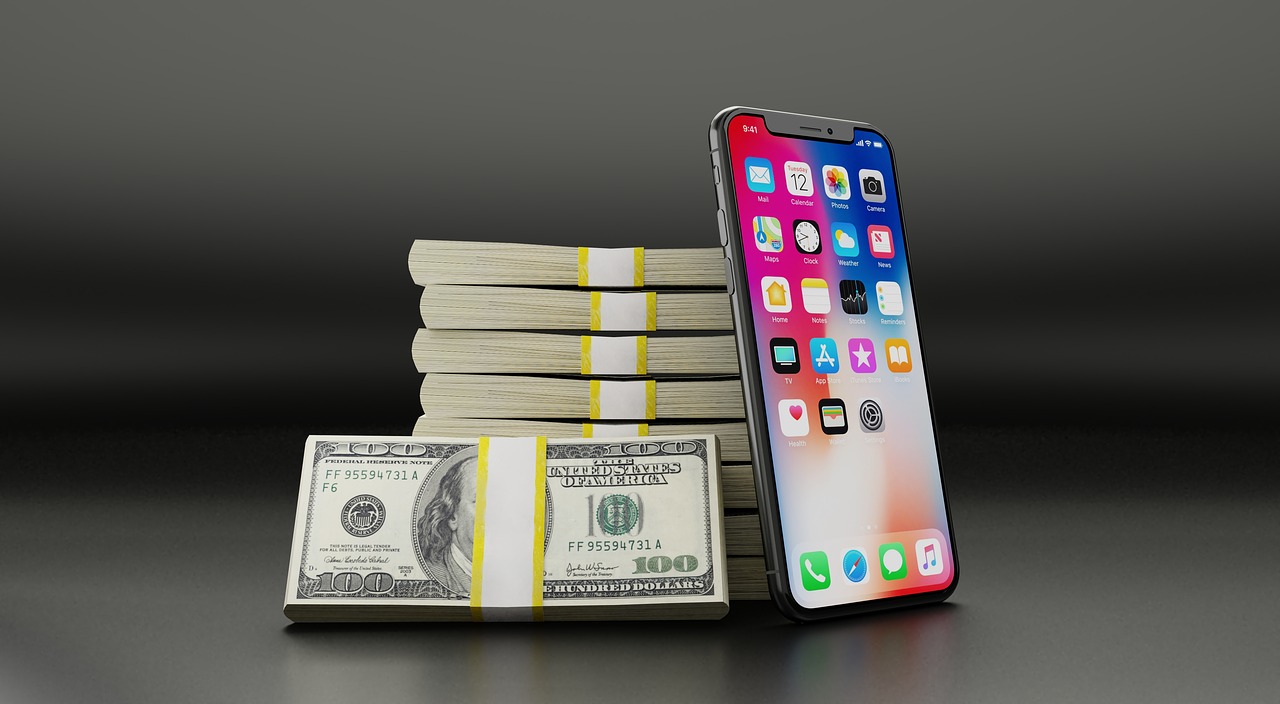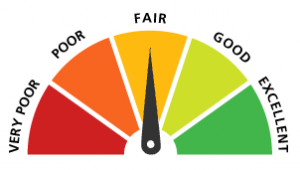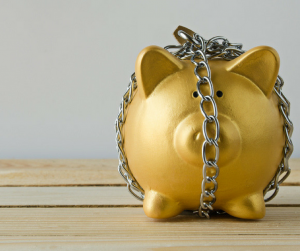Personal Finance
If You Had Invested $1000 In Apple In 1980, Here’s How Much You’d Have Now
Published
5 years agoon

Apple – on Thursday – lost its $1 trillion valuation for a short time after its shares dropped 7% following a weak outlook.
Despite the drop and weak outlook, Apple’s stock is the top choice of most investors and analysts.
And, if past returns are anything to go by, investors can still expect handsome returns from this 40-year-old company.
Apple’s stock – then and now
Talking of the past performance, those who invested in Apple in its early days would have made a fortune by now provided they were not tempted to sell their stock somewhere in between.
According to the calculations by CNBC, $1000 invested in Apple’s IPO in December 1980, would be worth over $500,000 now. The calculations include price appreciation and dividends.
Apple was founded in 1976 by Steve Jobs, Steve Wozniak and Ronald Wayne, with Wayne leaving the company just weeks later.
Apple’s first customer was The Byte Shop, a Bay Area computer store, which ordered 50 Apple I computers. Jobs took a $15,000 loan to complete the contract. In June of the next year, Apple released the Apple II.
Apple went public in December 1980 offering 4.6 million shares at $22 each. The IPO was well received, and the stock closed 30% higher on the opening day.
Currently, Apple’s stock is trading around $210.
Another interesting fact about the IPO was it created over 300 millionaires in a single day. According to EDN, the IPO created “more millionaires than any company in history had produced.”
Many of those millionaires were Apple employees, including Jobs who made more than $200 million.
A trillion dollar company now
Fast forward to 2018, Apple in August became the first public U.S. company to hit a $1 trillion market cap. Apple’s journey, however, hasn’t been smooth.
It was on the verge of bankruptcy in 1997, but somehow, Jobs managed to steer the company from those days along with revolutionizing the technology market with products like the iPod and iPhone.
Apple now has $237.1 billion in cash on hand. In the last quarter, the company reported $243.7 billion cash in hand.
Apple’s cash holding has always lead to M&A speculations. Though the company keeps on buying smaller companies from time to time, it lately spent its cash on content creation, emerging markets and creating jobs in the U.S.
Earlier this year, Apple even said that it would contribute $350 billion to the U.S. over the next five years.
Apple’s contribution will partly be in the form of taxes on the cash that it plans to bring back from overseas.
Apple also committed to creating 20,000 new jobs in the U.S., and a new campus as well.
What to expect now?
Apple, on Thursday, reported that its revenue jumped by 20% to $62.9 billion year-on-year, while profits rose by 31% to $14.1 billion. The increase in revenue despite relatively flat sales can be attributed to Apple’s strategy of charging more for its phone.
However, Apple’s stock dropped after the company revealed that it would no longer reveal the number of units sold.
Investors took this as a possible hint of weaker sales in the coming months. Apple, on the other hand, defended its decision, saying the numbers are now not a good indicator of Apple’s financial position.
“I can reassure that it is our objective to grow unit sales for every product category that we have,” Apple’s CFO Luca Maestri said during the earnings call. “A unit of sale is less relevant today than it was in the past.”
Apple also provided a disappointing forecast for the holiday quarter. For the quarter ending 31 December, the company expects sales of $89 billion to $93 billion.
Wall Street is expecting sales of $93 billion. In the same quarter last year, Apple posted sales of $88.3 billion.
Defending the not so encouraging forecast, CEO Tim Cook said the company is facing “macroeconomic weakness in some of the emerging markets” like Turkey, India, Brazil and Russia. Cook also partly blamed currency fluctuation.
Further, Maestri added that Apple is facing some supply uncertainty for its latest products.
Apple depends on China for its production needs, but the ongoing trade war between the U.S. and China has led to some uncertainty over Apple’s performance.
Though so far Apple products have been spared from tariffs, if the tension escalates, Apple products could get dragged in.
Cook, however, is optimistic that the nations will resolve the disputes soon.
You may like
Personal Finance
DIY: Money Management Tips That Will Improve Your Finances
Published
2 years agoon
January 11, 2022
Even if you’re not looking for a property this exact second, you always want to be improving your position.
So, focus on the downtime to improve your finances, get your debt squared away, and put yourself in a better position when you are ready to buy!
It’s important to be sure of your financial position before you buy a property because you might find it’s harder to get that property than you would have originally thought.
Here are some personal finance tips to help you save, pay down more debt, and qualify for better loans.
Pay Attention
One of the most common reasons that people struggle financially is because they simply don’t pay attention to what is going on in their own financial life. If you are not paying attention, you can’t hope to know what is going on and therefore know how to improve matters.
Read these money management tips to start paying attention to your finances.

When I’m working on a project, I’m laser-focused on the budget, the details, the costs, etc. But, sometimes in my personal life, I let this slide.
The reality is, when we do have a budget and focus on sticking to it, our bank account balances grow so much faster than when we aren’t using one.
I love to eat out, and my wife loves to buy small things around the house. One day, we looked back over the previous year of spending and found we each averaged over $1,000 per month on our hobbies!
By pulling back a little in each area, we were able to save over $1,000 per month but still do the things we enjoyed.
So, start by having a budget!
Even if you are financially well off and can afford most of what you want, by budgeting for the items and spreading the costs out over several months, you’ll find that you buy less, spend less, and save more.

Also, if you budget to pay down certain debts faster, you’ll see those balances dramatically drop!
So, do not overlook the importance of a family budget.
Save On Other Purchases
There might be a number of other big purchases you need to make before you get hold of your next property, and it is a good idea to make sure that you are only spending as much on those as absolutely necessary.
For any big ticket items, we actually start searching for them months or even a year in advance. For example, let’s consider kitchen appliances.
As you know, a full set of appliances can easily cost $5,000-$10,000 if you are getting high-end products. It includes a fridge, double oven, gas cooktop, microwave/fan, and dishwasher.
The first thing we did was go to the store and decide on two or three brands, styles and product lines we wanted. It’s hard to compare prices unless you are looking at similar products between stores.
Then, for months we’ll watch these items and their prices. Occasionally there will be sales and by tracking the pricing all year, we know which sales are worth getting or not. When we feel we are getting the best price, we’ll buy.
And by doing that, we can easily save $500-$1,000 or even more.
We did something similar with our TV, computer monitors, etc. Basically, anything that is currently working that we want to upgrade. Over the course of a year, we are saving thousands of dollars.
You might also use a money saving app to help.
Saving money in all these places will make an enormous difference when it comes to saving for your next down-payment
Pay Down Debt
With all the money you are saving by budgeting and by planning out major purchases, you might want to use some of it to pay down debt.
You’ll have to decide if it’s better to pay down debt or have a larger down payment because both will hold you back on your next purchase.

But, generally, paying down $1/month in debt is worth about $3/month in income. At least, as far as loans are concerned.
If you do decide to work on paying down your debt, I fully detail a unique debt pay down method to get you into your next rental property faster.
Increase Your Income
Most people just focus on debt, but the reality is you can only cut your expenses so much.
Income, on the other hand, has unlimited potential. So, why not focus on growing your income?
Increasing your monthly income can be done in a number of passive and active ways, and it is worth looking into as many of these as you can to find the right one for you. I outline a number of ways to increase your income in this article on how to earn $10,000 per month.
While earning $10,000 per month in side-income might seem a long way off, it’s important to start! Even if you can earn an extra $500 month now, and grow it slowly over time, it’s worth it!.
Don’t Focus on Just One Thing
As I mentioned already, focusing on just budgeting, or debt paydown can be detrimental to your overall financial goals. It’s important to combine a number of different things into an overall strategy, which includes budgeting, debt paydown, and increasing your income.
To know more about real estate hack, money tips, and building generational wealth, subscribe to Wealthlab and learn how to bust through the barriers preventing you from becoming a millionaire.
This article originally appeared on IdealREI. Follow them on Facebook, Instagram and Twitter.
Personal Finance
VIDEO: 3 Things You MUST Know About Your Credit Score
Published
2 years agoon
October 18, 2021
We all know what a credit score is. Sort of. But what really goes into your credit score? In this video, Investopedia breaks it down. Here are the top 3 factors that affect your credit score — and what you can do about it.

If financial difficulties are keeping you awake at night, take action and tackle your problems head on otherwise they are likely to get worse. The ability to pay for rent, mortgages, bills, and food are fundamental to our quality of life.
It is important to plan for future financial hardship by making saving a goal and budgeting carefully. It’s impossible to predict what will happen in the future, so to cushion any financial hardship, it’s worth putting a little money aside each month.
Developing a savings plan now will enable you to get on with living your life stress-free! Here are the financial tips to start building your wealth.
Reduce monthly bills
List all your current outgoings and look to see if you can make any savings. Often it’s tempting to keep the same standing order from the same insurance company for year upon year. You are likely to be paying too much for your premiums and it’s worth shopping around and switching.
Look at the amount of interest you are paying on loans, mortgages and credit cards, you could be able to secure a better deal. One thing to remember is to check your credit score if it is poor lenders won’t give you the best interest rate.

It is possible to repair your credit score by using the expertise of a credit repair company.
Utility bills can be reduced by switching utility providers. Use an online comparison site to secure the best deal. Switching is easy as most of the work is completed for you by your new supplier.
Budget
To budget carefully you need to be in control of your spending and to be in control you need to be aware of your income and outgoings. List every necessary outgoing that must be met on a monthly basis and you will be left with an amount which will have been spent on miscellaneous items such as eating out.
You can then design a budget plan so that you can put a certain amount into a savings account. You will probably be surprised at how much your morning coffee costs when added up over the month.
Cut it down to once or twice a week and you will make significant savings.
Make savings work to your advantage
Savings (if you have them!) can work to your financial advantage. Ensure you choose the best financial products that give the maximum return on your savings. Financial products change rapidly to factor in a financial audit of your savings every couple of years to check savings are in the best account.
You could also consider investing your savings property or financial shares. This has the potential to be lucrative but is not without risk. Consider hiring a professional and independent financial advisor for advice.

Ideally, you should set apart some of your salaries each month in order to build up an emergency fund. Life can be unpredictable and without savings to fall back on, your car breaking down or your roof leaking could plunge you into more debt as you borrow to rectify the situation.
Savings will cushion the blow of any financial hardship.
Stop Paying Extra Bank or Late Fees
Late fees are not helping you. They add up over time – fees can even accrue fees!
If you are the kind of person who always forgets to pay their bills on time, you can get around this by automating your finances so that the money automatically goes out of your account.
You should also avoid making any extra charges on your credit card unless you are sure that you are able to pay it off in full at the end of the month.
Don’t Pay Full Price!
Paying full price is a really common financial mistake that a ton of people make.
In today’s world, you can find a sale on just about any item. If you see something you need at the store, take a few moments to shop for it online and you’ll probably be able to save 10-20%
Not only does this method stop you from overpaying, it also gives you a moment to think and decide whether or not what you were thinking of buying is actually a worthwhile investment.
Create a Financial Defense Plan
All of us need to not only earn our living and grow our finances if we’re to live a comfortable and happy life, but we must also defend them.
That means ensuring you stay rational, sensible and forward-thinking in all matters related to your financial health.
There are a few considerations you can take care of in order to make this so, and generate a cognitive and systemic financial defense to keep your money yours, and flowing in the direction you most want.
Here are the keys to defending your financial interests
Know Good Lawyers
The most important thing is to have good counsel and good advice. So, hire the best attorneys that you can afford. From real estate to contracts to brand protection, you need someone behind you making sure you aren’t making any major missteps.
The world practically runs in the courtroom now, unfortunately. So, with good attorneys on your side, it will keep you out of the courtroom and focused on running your business.
Have A Contingency Plan
It’s always best to have a fail-safe.
This might mean never tying up all your investments in one basket. It might mean diversifying your investments .
Or, it could mean allowing only one or two financial handlers to have any kind of insight into your money matters in the first place.

The key is to be able to have a solid plan but also be able to pivot to something else should the first plan fail.
With the willingness to keep a backup plan, or a mode of operation to take when something fails or doesn’t go the way you expect, you at least won’t lose anything.
Keeping a solid contingency is also reliant on keeping solid discipline with your financial means – without this none of your decisions are likely to land effectively.
Pore Over Contracts
Whenever signing a contract, or forging a new one, you need to know exactly what terms are referring to.
You also need to read between the lines, and consider what situations a certain stipulation could affect in the future. Remember, even vaguely written terms in a contract do not fall there unexpectedly.
They are either there to make or defend a certain form of income, or persuade and dissuade a certain type of behavior. Every word counts.
Remember the first recommendation? Well, here’s where they come in. But, it’s important to know how to read and interpret the contracts yourself as well.
Study contract terminology and simply dedicate the time to observe and understand.
Look For Weak Spots
What are the weak spots in your defense system?
Could it be family members having access to your accounts? Do you think it could it be emotional family members asking for financial help, when this is not genuine?
Or perhaps it could it be the services you bank with.
Don’t forget about the way you log in to your accounts and store passwords.
To prevent your finances from being breached, keep up to date on modern security measures. From there, you should be settled.
Conclusion
To reduce your financial stress, the key is to lower your costs, increase your passive income, and protect your assets.
To know more about real estate hack, money tips, and building generational wealth, subscribe to Wealthlab and learn how to bust through the barriers preventing you from becoming a millionaire.
This article originally appeared on IdealREI. Follow them on Facebook, Instagram and Twitter.
Top 5 Best Investment Strategies To Survive A Recession
The Top 10 Investment Opportunities To Capitalize On During A Recession
3 Gold Mining Stocks To Buy Today 📲
Ad 1
Trending

You’ve reached your free article limit.
Continue reading by subscribing.
Already a subsciber? Login >
Go back to Homepage >




